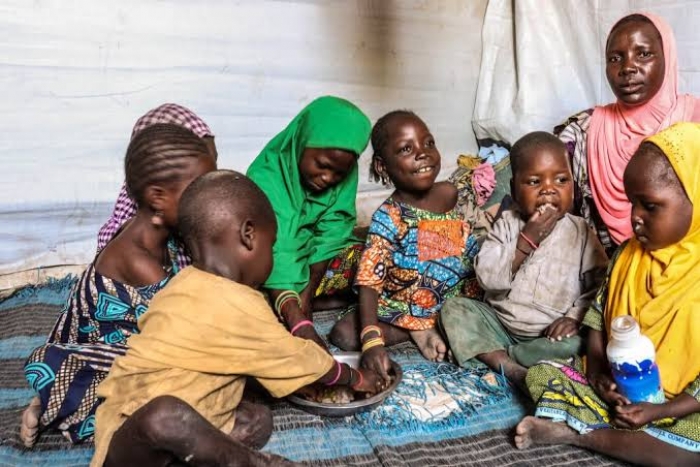The Federal Government of Nigeria, in partnership with the United Nations, has unveiled a comprehensive $159 million plan aimed at tackling severe food insecurity affecting millions of people in the conflict-affected states of Borno, Adamawa, and Yobe.
Minister of Humanitarian Affairs and Poverty Reduction, Nentawe Yilwatda, announced that the government will spearhead a coordinated multisectoral response to address the food crisis in these northeastern states. The announcement came during Tuesday's launch of the 2025 Lean Season Food Security and Nutrition Crisis Multisector Plan at the UN House in Abuja.
According to the UN's Office for the Coordination of Humanitarian Affairs (OCHA), approximately 4.6 million people across the three states face the risk of severe hunger, while 630,000 children under five years are threatened by acute malnutrition during the upcoming lean season.
The six-month operational response targets two million vulnerable people and brings together key UN agencies including UNICEF, the World Food Programme, and the Food and Agriculture Organization, alongside international and local NGOs and state governments.
However, Mohamed Fall, UN Resident and Humanitarian Coordinator in Nigeria, expressed concern about dwindling resources for humanitarian operations. "A lot of capacity has disappeared, and we are now only focusing on lifesaving activities. The gains we have made in preventing malnutrition and increasing our joint capacity to treat malnourished children are being wiped out," Fall stated.
Yilwatda acknowledged that the crisis poses a significant challenge to President Bola Tinubu's "Renewed Hope Agenda" and tests the government's capacity for timely intervention. He praised OCHA's multisector approach that integrates food assistance, nutrition, health, water and sanitation, protection, agriculture, and early recovery initiatives.
"The federal government will lead from the front—not just in coordinating this response but in ensuring alignment with national policy, clarity of roles, and accountability of outcomes," Yilwatda affirmed. "We are leveraging the national social register with geotag capabilities for real-time vulnerability mapping and integrating digital targeting to reach displaced persons and host communities more efficiently."
The minister emphasized the importance of local leadership and ownership at state and local government levels while urging international and local partners to align their responses with national systems and state authorities.
